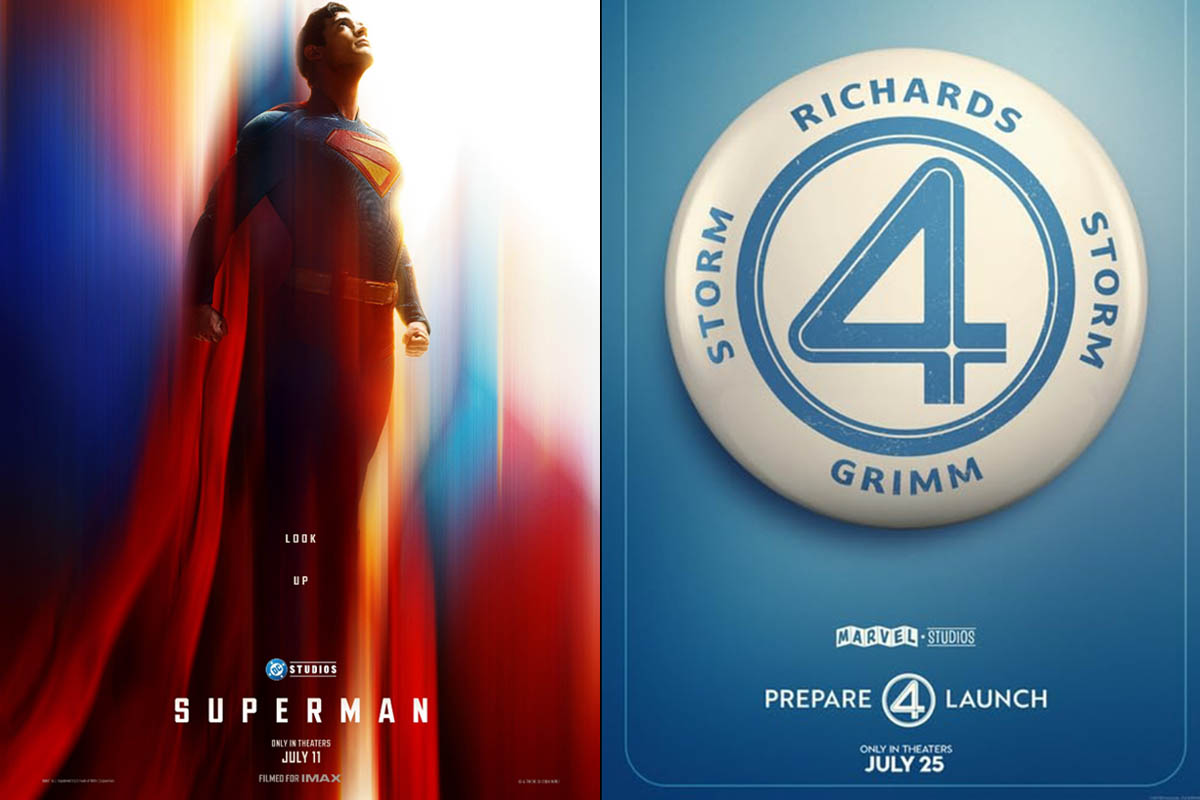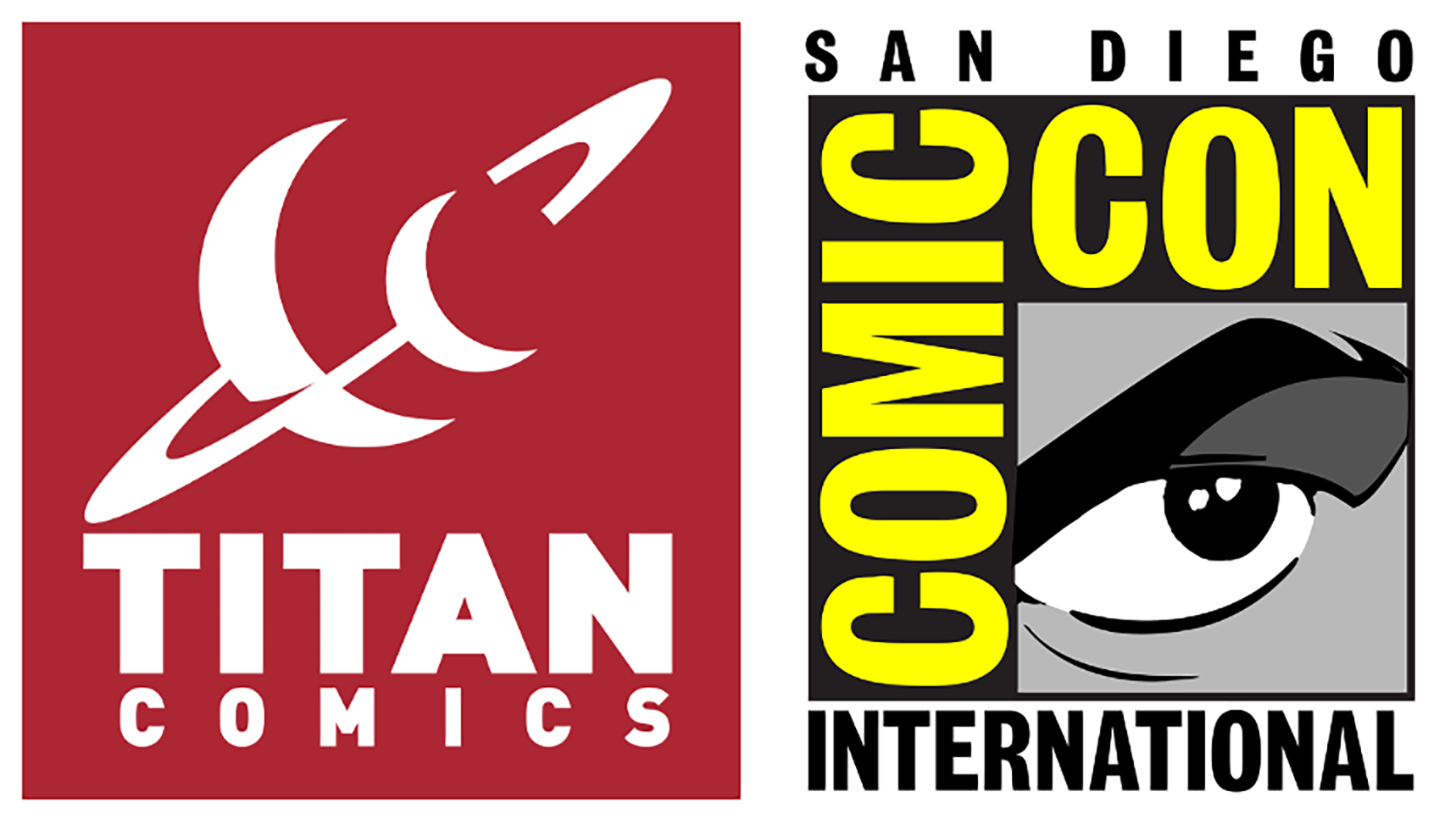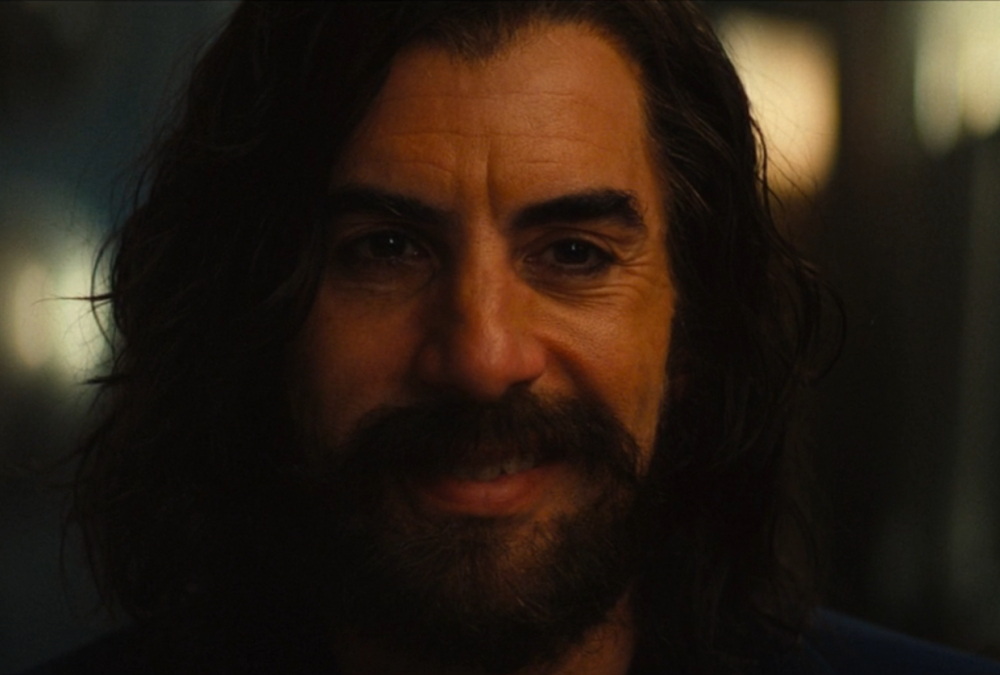
The Podcast
In the latest edition of Los Fanboys, Jammer and David discuss the main differences between DC and Marvel’s film and TV worlds. How are they similar, and why do some folks connect more with Marvel? We dive deep on that subject.
From there, we head into the past weekend at the box office, the future of the Cloverfield franchise, Indiana Jones 5, Ready Player One‘s early release date, Ant-Man and the Wasp‘s new trailer, Netflix’s CEO divisive comments, the first image of Captain Marvel, and the upcoming Metropolis TV show, which hails from the producers of Gotham.
SHOW GUIDE:
00:00:00 – DC-Marvel — What’s the difference?
00:24:30 – Box office discussion.
00:29:10 – Cloverfield 3 and Cloverfield 4 discussion.
00:38:00 – Indiana Jones to shoot in 2019.
00:43:00 – Ready Player One‘s release date pushed up one day.
00:45:30 – Ant-Man and the Wasp trailer reactions.
00:51:43 – Netflix CEO’s comments on critics.
00:57:41 – Captain Marvel outfit.
01:00:10 – Metropolis coming from Gotham producers.
01:05:50 – What we’ve been watching. | Arrow & The Good Place
The Editorial
What do we want from our superhero movies and TV shows? Traditional (or iconic) good vs. evil extravaganzas or unconventional explorations of our character’s inner lives? A bit of both perhaps?
Marvel and DC — the major players in this genre — have produced dozens of live-action series and film over the past decade, which offer drastically different experiences for their respective audiences. The high-level focus is obviously superhero/villain conflicts, but the deeper narratives, the lower-level stuff, is where things begin to diverge in interesting ways. Some of it’s working, some of it’s not. Let’s discuss…
Emphasis on Spectacle or Character?
The gap between DC and Marvel’s superhero films is widening, because each entity is pursuing a distinctly different audience. DC Films makes effects-heavy, good-vs-evil, CG spectacles that are (thus far) pretty shallow affairs. Marvel Studios started out this way too — their first two phases were up and down — but since phase three, their films have evolved into intensive, character-focused films. Marvel’s MCU films (and to a lesser extent Fox’s X-Men or XCU movies) are interested in their character’s personal relationships, inner turmoil, need for redemption, etc. while exploring deeper themes of crime and punishment, unchecked power, rule of law vs. vigilantism.
Related – New Study Could Explain Why Marvel Movies Are Trouncing DC
Basically, Marvel had a huge headstart on DC regarding superhero movies. DC is several films behind Marvel, in terms of matching the depth and range of the MCU and XCU films. They’ll eventually catch-up, but they’ve still got to make their equivalents of Thor: The Dark World or Iron Man II before they hit their stride.
On TV, DC and Marvel’s narrative approaches are more aligned. DC’s various superhero shows on The CW, Fox, and AMC are more character-focused than the corresponding films, yet still lack the approachability of Marvel’s TV content on ABC, Hulu, FX, AMC, and Netflix. The CW’s Arrow, for example, is a more traditional, team-centric heroes vs. villains series, whereas each of Marvel’s Netflix shows — Daredevil, Luke Cage, Jessica Jones, Iron Fist, The Punisher — deal with internal conflicts of addiction, racism, rape, coming of age, and corruption, respectively. DC holds their own against Marvel on TV, but they’re addressing a much narrower audience.
Connecting With Audiences

People go to the movies to see characters thrust into interesting situations. Stories, locations, special effects, and cinematography all matter, but ultimately, movies are about characters. Here again, DC and Marvel diverge — their respective universes are jammed full of really distinct characters that may or may not resonate with everyone the same way.
Marvel’s characters are arguably more relatable than DC’s, in both film and TV. Marvel’s heroes are known for their run-of-the-mill, everyman nature, including: Soldiers, students, doctors, lawyers, mercenaries, ex-cons, and entrepreneurs — we can easily identify with these characters. Marvel, also has a lot of military-themed heroes (and more on the way) — given sixteen years of endless war, it’s reasonable that everyone knows someone who served in the military. Marvel’s characters are more accessible by virtue of their vocations and their life circumstances.
DC’s leading characters include: billionaires, aliens, demigods, sea creatures, human-robot hybrids — you don’t run into these folks at the supermarket. There’s nothing wrong with any of DC’s heroes (or villains), but they’re a step or two removed from reality, compared to Marvel’s characters. DC would be smart to lean more into gender and racial diversity, as they did with Wonder Woman. DC needs more characters who resonate with our middle and working classes. Currenlty, Marvel’s characters are a little more human and little less wish-fulfillment
Reaching New Audiences Through Innovation and Variety

Marvel invests in wildly different sub-genres to help broaden their appeal, whereas DC doubles-down on the more classic superhero approach, which limits their audience. Marvel’s TV shows and movies are constantly changing and evolving; every new Marvel show or film is a hybrid: espionage-thriller, sci-fi-comedy, rom-com, heist, and horror-fantasy. DC’s films and TV shows are (generally) more straight-up hero-vs-villain affairs. Incidentally, Marvel struggles when they go the DC route of core hero-vs-villain action (Avengers: Age of Ultron, X-Men Apocalypse).
DC Films and TV shows are also narratively more predictable; they lack surprises and twists, which are the hallmarks of Marvel’s movies and series. The biggest DC surprise to-date was Superman’s return in Justice League, except that everyone knew it was coming. I liked Wonder Woman a lot, but there’s not a single beat in that film that wasn’t telegraphed — with the exception of WW’s walk across the WWI battlefield. There’s just something a little flat and simplistic about DC’s superhero movies. (They simply don’t challenge me as a viewer.)
Surprises and twists and turns are the norm across Marvel’s projects. Spider-Man appearing in Captain America: Civil War and that amazing airport fight; Tony Stark’s near sacrifice at the end of The Avengers; Thor and Hulk’s personality changes in Thor: Ragnarok. These are all amazing, stand-out moments, which are lacking from most DC movies and shows.
Again, Marvel’s early phase one and two films weren’t always as successful as phase three, and their initial ABC and Netflix series were markeed by clunky storytelling at times. However, Marvel has built up a wide and diverse audience by focusing on relatable characters, deeper themes, lots of variety, and plenty of surprises. DC continues to focus on a much narrower audience, primarily teen-aged boys, through straight-forward, shallower narratives.
DC is simply behind Marvel regarding their film and TV content. Given another four or five years and another dozen movies and shows, it’s likely we’re having a much different conversation. That said, DC needs to take a few more narrative risks and go in directions that get them out of Marvel’s shadow. With all the changes at DC Films and Warner Bros., Suicide Squad 2 is probably our next true opportunity to see what they’ve learned and how they’re applying it.
Do you prefer Marvel or DC films and TV shows? Let us know in the comments down below!
Don’t forget to share this post on your Facebook wall and with your Twitter followers! Just hit the buttons on the top of this page.

 FOR FANBOYS, BY FANBOYS
Have you checked out LRM Online’s official podcasts and videos on The Genreverse Podcast Network? Available on YouTube and all your favorite podcast apps, This multimedia empire includes The Daily CoG, Breaking Geek Radio: The Podcast, GeekScholars Movie News, Anime-Versal Review Podcast, and our Star Wars dedicated podcast The Cantina. Check it out by listening on all your favorite podcast apps, or watching on YouTube!
Subscribe on: Apple Podcasts | Spotify | SoundCloud | Stitcher | Google Play
FOR FANBOYS, BY FANBOYS
Have you checked out LRM Online’s official podcasts and videos on The Genreverse Podcast Network? Available on YouTube and all your favorite podcast apps, This multimedia empire includes The Daily CoG, Breaking Geek Radio: The Podcast, GeekScholars Movie News, Anime-Versal Review Podcast, and our Star Wars dedicated podcast The Cantina. Check it out by listening on all your favorite podcast apps, or watching on YouTube!
Subscribe on: Apple Podcasts | Spotify | SoundCloud | Stitcher | Google Play



